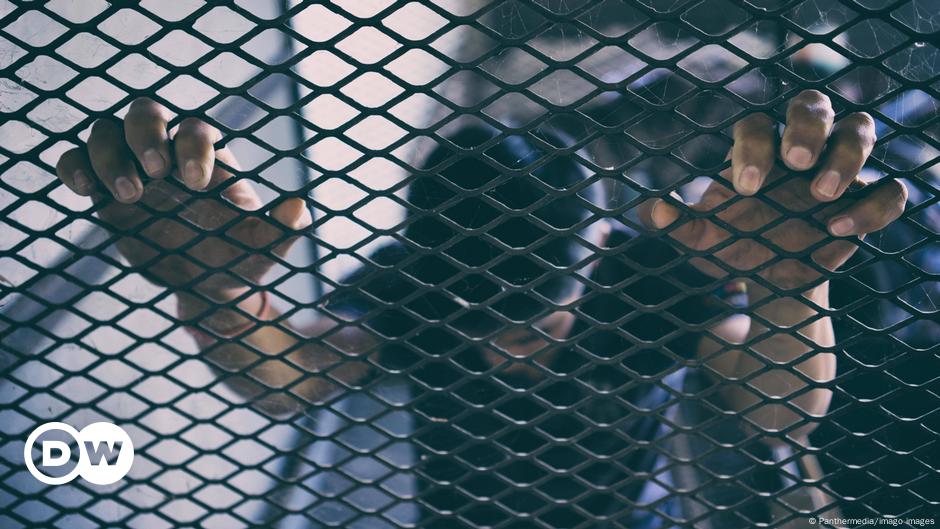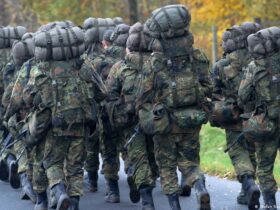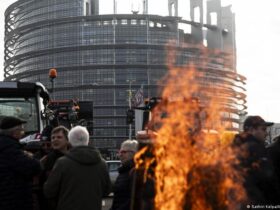Nam (name changed) had to wait 12 years before returning from Europe to his parents in Vietnam. He could not return at first because he was living in Germany illegally and did not have the necessary papers to travel.
As a young man looking for a better life, he decided to try his luck in Europe in 2012.
The then 20-year-old man and his family had borrowed money to pay human traffickers.
Nam was smuggled into Germany via Russia and was living the life of a “naked person”, a term popular in Vietnamese chat groups like Luet Phap Đức (German Law) on Facebook to describe illegal and undocumented immigrants. Is used in.
In such groups, people can ask questions anonymously, including questions related to access to health care, travel outside Germany, marriage, and divorce.
no isolated case
The story of Nam is no isolated case, as human trafficking from Vietnam to Europe has become a significant problem in recent years, even if the full extent of the issue is unclear.
European authorities are cracking down on smuggling rings, but they have not been entirely successful.
The issue of human trafficking from Vietnam came to the fore in October 2019 when 39 Vietnamese nationals were found suffocated in a refrigerated truck parked outside an industrial estate in Essex County, UK.
Many victims are believed to have been trafficked to Europe to work as forced labourers.
In response, the EU decided to focus more on fighting human trafficking in 2021 through cooperation with Europol and Interpol. In Germany, the Federal Criminal Police Office (BKA) launched a four-year research project to better understand human-trafficking networks and methods involving Vietnamese nationals.
The BKA found in its analysis that the abuse and suffering experienced by male and female victims varies, with men more commonly facing labor exploitation while women are significantly more likely to be sexually exploited.
silence is a challenge
The law enforcement agency said victims usually remain silent, which is one reason so little is known about these crimes. For example, it is surprising that none of the Vietnamese victims in the BKA research sample filed allegations.
“Victims experience very serious violations, namely of their human rights. But victims often do not perceive themselves as such,” Tanja Cornelius, a researcher at the BKA’s organized crime, economic crime and cybercrime research unit, told DW.
BKA Chief Superintendent Nicole Baumann, who has been working in the field of human trafficking for more than 20 years, said the silence of victims poses a challenge. “Criminal proceedings are hardly possible without the statements of the victim,” he said.
As a result, many crimes go unreported and unpunished.
common interests and goals
Cornelius pointed to the “fatal situation” of victims, whose goals, in a way, run parallel to those of the perpetrators.
Research in criminal psychology shows that victims, not traffickers, fear being caught and losing all their money and efforts.
“People probably often assume that there will be some very difficult years full of deprivation in the beginning,” Bauman said. He said they live under the radar, working hard with the hope of paying off loans and receiving “papers” quickly. He said this helps criminals, who are also interested in going unnoticed.
Many victims see this as an opportunity, reflected in the fact that they borrow huge sums of money and take significant risks to begin the journey to reach Germany.
It is estimated that smugglers charge between €10,000 ($10,500) and €23,000 per migrant, according to government figures, a huge sum considering that the monthly per capita income in the Southeast Asian country is around €190. Is.
Big money and high risks do not seem to deter many Vietnamese people, as they are willing to pay the price to fulfill their dreams of a better life.
What role do social factors play?
Peer pressure also plays a role.
Vietnam currently has many municipalities with high-rise buildings and nouveau rich villas imitating European architecture with pillars and tympanums. There are several “VND billionaire villages” where many residents became extremely wealthy due to labor exports and money received from foreign workers.
Many of these places are nicknamed “Seoul” or “Europe” because of the large number of people from these areas who work abroad.
Young Vietnamese from these so-called “tycoon’s villages”, as the name suggests, face strong pressure from family and wider society to succeed, like others who have managed to migrate to Europe.
Some Vietnamese people smugglers and organizations that facilitate work visas use social media to disseminate images of expensive cars, luxury trips or fancy, brand-name clothing to influence people’s decisions to migrate.
“Wealth is promoted on social media and it also creates a false image. Failures are rarely reported,” Bauman said.
Social factors also play a role in ensuring that victims remain silent. The pressure to succeed prevents Vietnamese victims from sharing their failures or struggles, including harsh working conditions or sexual abuse.
Some people are ready to go to any extent and endure any hardship to support their family.
However, the 2019 Essex case proved to be a turning point, with many trafficking victims sharing their stories anonymously after that tragedy. Although there was a lot of media coverage immediately after the disaster, attention gradually died down.
Considering all factors, in the case of human trafficking involving Vietnamese people, violence is considered to play a subordinate role, with perpetrators usually relying on social pressure and familial expectations rather than threats and intimidation.
need for legal migration
Cornelius and Baumann, BKA officials, emphasize that their project and research results are not about criminalizing any community.
Most migration from Vietnam is legal and welcome, as the aging German society needs qualified workers from Vietnam.
Recognizing the need for Vietnamese labor, the governments of both countries recently reached an agreement to promote skilled immigration.
Nam said there will always be a small number of people who will attempt the illegal route.
In some cases, and particularly in illegal contexts, there are perceived benefits.
“They don’t have to learn German, and more importantly, they can make more money right away,” Nam said. For some less educated Vietnamese from villages with poor economic prospects, this decision makes sense. ”
What needs to be done?
Tackling criminal activities and people trafficking requires a holistic society-wide effort, with authorities in both Vietnam and Germany working together.
Vietnam recently released its Migration Profile 2023 report, collaborating with global agencies such as Interpol and joining the Protocol against Smuggling of Migrants by Land, Sea and Air to promote border management cooperation. is considering – which complements the United Nations Convention against Transnational Organized Crime. Fight and prevent international crime.
Bauman stressed that it is important to increase education and awareness, especially targeting those who are likely to be victims of human trafficking. Individuals and families can take the right decisions only if they know what the situation is like for illegal immigrants in Germany, the official said.
However, there are legal methods of migration, which every Vietnamese can find out about at the German Embassy in Vietnam. This may take more time, but it is a safer option.
Edited by: Srinivas Majumdaru






Leave a Reply